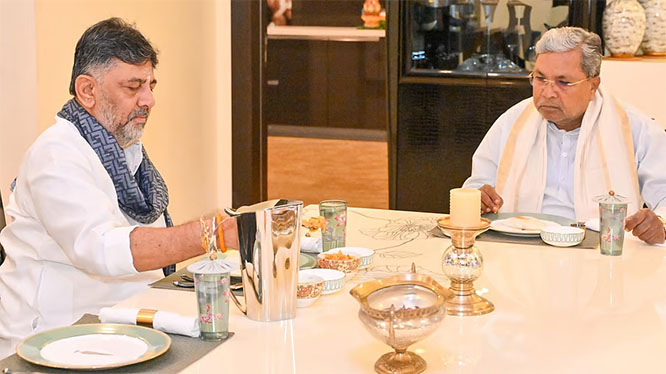Several experts and doctors from across the world have warned against the careless use of hand sanitizers by the children and urged the parents to be cautious.
A recent international study found that hand sanitisers harm and hurt children's eyes.
Last month, a four-year-old child in the UAE severely injured her eye after hand sanitizer from a foot-operated station was accidentally squirted directly into it. According to her parents, the accident occurred when the child playfully touched the hand sanitizer station at a public place while she stood directly under it.
The child was rushed to Cleveland Clinic Abu Dhabi, where doctors immediately washed the child's eye, administered antibiotics to prevent infection, and applied eye drops to reduce discomfort. She was diagnosed with a near-total corneal abrasion caused by the alcohol and alkaline chemical additives in the sanitiser.
Dr Razia Mele Vallopra, a specialist paediatrician at Prime Medical Centre Al Nahda, says it is now a common sight to see parents sanitising their children's hands multiple times during the 15 minutes inside her consultation room.
"Sanitisers is also being used on the hands of younger children lavishly. Dispensers are placed in prominent locations in public places like malls leading to unsupervised use by children," she said.
According to Dr Vallopra, many studies have proven that sanitisers with an alcohol content of less than 60 per cent are ineffective. The US-based Centers for Disease Control and Prevention categorically states that washing hands with soap and water for 20 seconds is superior to using a hand sanitiser, he said.
"But the sanitisers are here to stay, mainly due to their portability and ease of application. As the percentage of alcohol increases, so does the side effects," said the health expert adding she was facing issues in his paediatric practise that were rare before the outbreak of Covid-19.
"Due to the drying effect of alcohol, several children developed dried and cracked skin which made them prone to picking up infections as the protective barrier of intact skin was lost," said Vallopra.
"Many children with previously diagnosed and controlled eczema developed flare-ups of their rashes. Unsupervised use of dispensers on pedestals have caused misdirected spray into the eyes leading to chemical burns."
She advised parents not to allow children to use hand sanitisers without supervision and to use the product in moderation.
"Take a small amount and spread all over the hands and wait for it to dry completely. Avoid ingestion and contact with eyes. Choose hand washing over sanitiser if the situation permits," she said.
Dr Prabhakar Patil, specialist paediatrics & neonatologist from Medcare Women & Children Hospital, says small children are especially susceptible to accidental ingestion of sanitisers as they come in many colourful shapes and sizes.
"As they are more curious, they tend to ingest them. Ingestion can lead to alcohol poisoning with symptoms like excessive sleepiness, low blood sugar, sometimes can lead to convulsions and coma. If sanitisers contain menthol, which is more toxic, it can lead to headache and sometimes blindness and damage to the central nervous system," he said.
"When the sanitiser accidentally touches eyes, it can lead to irritation, redness, blurring of vision, and sometimes chemical burns," he cautioned adding that families should always keep the sanitisers out of reach from children.
Dr Sandeep Kuchi, a paediatrics and neonatology specialist at Aster Hospital, says "rare health effects include coma, seizures, low sugars and respiratory depression."
"Although the use of hand sanitisers must continue, while it is one of the ways to contain the spread of the virus, as a parent, you must try and lessen its harmful impact on our children's health."
Dr Kuchi has advised parents to use soap and water over hand sanitisers with their children wherever possible.
He noted that recent research shows the number of cases due to chemical exposure incidents after excessive usage of sanitiser and adverse health effects has gone up by 8-10 per cent.






Comments
Add new comment